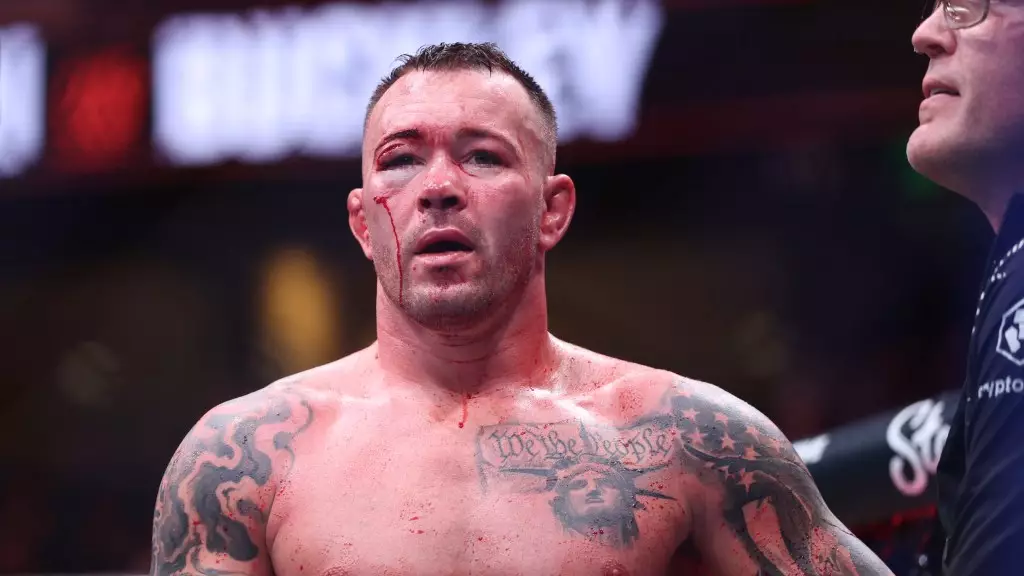The aftermath of UFC events often brings to light the physical toll sustained by the fighters in the octagon. The recent UFC on ESPN 63, held in Tampa, Florida, was no exception, as five fighters were handed indefinite medical suspensions due to potential injuries incurred during their bouts. While the media focusing on the event tend to spotlight the thrilling fights and impressive performances, the consequences faced by the fighters post-match often go underreported. In this article, we will explore the implications of these suspensions, examine the specifics surrounding the lack of longer suspensions for prominent fighters, and highlight the importance of ensuring fighter health and safety.
UFC on ESPN 63 may have showcased high-octane battles, but it also marked a serious moment regarding fighter welfare. Medical suspensions are a crucial aspect of Mixed Martial Arts (MMA), as they serve to protect fighters and assess injuries to determine their ability to compete in future events. This particular UFC event saw five fighters receive indefinite suspensions, signaling notable concerns about their health. Indefinite medical suspensions typically indicate that the affected fighters may sustain injuries that necessitate further medical evaluation before they can be cleared to compete again.
While the specific nature of the injuries was not disclosed due to state privacy regulations, their presence serves as a stark reminder of the dangers inherent in the sport. The fight game is notably unforgiving, and even minor injuries can escalate if not followed by adequate recovery, prompting cautious approaches from both the medical teams and regulatory bodies.
Interestingly, the event’s main card featured Joaquin Buckley and Colby Covington, who both managed to avoid lengthy suspensions, but not without drama. Buckley, despite winning via doctor stoppage due to a laceration, only faced a 45-day suspension—an outcome that some may find curious given the competitive intensity. Covington, on the other hand, although not victorious, received the same 45-day hiatus, raising questions about the criteria in determining medical suspensions for high-profile fighters.
This disparity in suspensions can highlight the complex nature of assessing injuries in real-time amidst the chaotic atmosphere of a match. Jurisdictions may vary in their enforcement protocols, sometimes resulting in inconsistent suspension durations. The Florida Athletic Commission, while diligent in its role, may not always provide transparent criteria for these determinations, leaving fans and analysts speculating about the safety regulations governing high-stakes bouts.
The necessity for comprehensive medical evaluations post-fight cannot be overstated. The MMA community has long debated how to enhance safety standards, and the growing number of medical suspensions signifies a critical need for reform. Promotional bodies and athletic commissions must work in tandem to ensure that health protocols are not merely procedural obligations but rather integral components of fighter preparation, competition, and post-fight care.
Moreover, rising awareness about fighters’ long-term health has prompted advocates to push for mandatory medical checks, psychological evaluations, and routine health assessments as part of a fighter’s career longevity. Adopting a more standardized and transparent approach to injury assessments could help assure both fighters and fans that safety remains a priority in MMA.
As the excitement of UFC on ESPN 63 fades, the importance of prioritizing athlete health resonates louder than the cheers of victory. The indefinite suspensions handed to several fighters underscore the ongoing need to reassess safety protocols within the sport. Key figures like Buckley and Covington, despite their status, should not be seen as exempt from concerns surrounding health and safety, as their experiences reflect broader issues requiring vigilant attention in the fight community.
While the allure of mixed martial arts lies in its adrenaline-fueled competitions, the physical repercussions of each bout necessitate serious consideration. Ensuring the wellbeing of fighters is as essential as celebrating their achievements, as a responsible sport is ultimately measured not just by the accolades it brings but by the dignity and health it preserves for its warriors.

